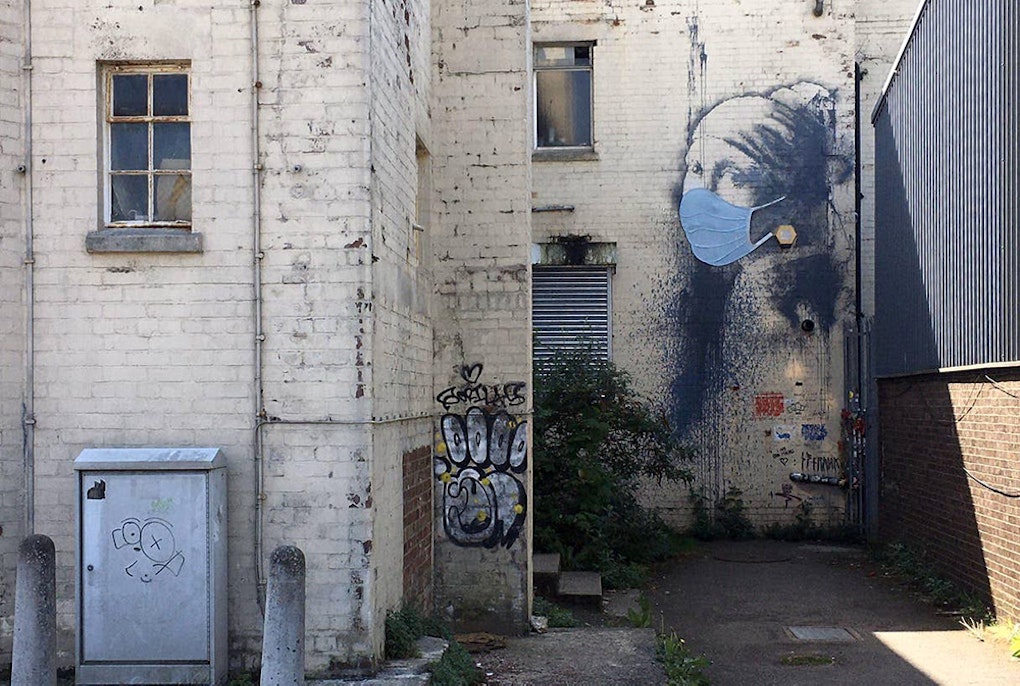
Die Macht der Diskurse und der Kultur: Ein Interview mit Hartmut Schröder



There´s never been a better time to advocate for open science. The COVID-19 pandemic has laid bare the reasons why it is crucial for knowledge to be transparent, reproducible, inclusive and openly available - as soon as possible.
The scientific community responded rapidly to the crisis by releasing over 125,000 COVID-19–related articles within the first ten months following the report of the first confirmed case, of which more than 30,000 were papers posted on preprint servers. A recent study looked into the online propagation of preprints in bioRxiv and medRxiv and found an unprecedented role for them in the dissemination of COVID-19 science 1.

Figure 1: Growth of journal articles and preprints containing COVID-19–related search terms, from January 1 to October 31, 2020. Reproduced from PLoS Biol 19(4): e3000959
Many academic journals reacted to the emergency by speeding up their peer-review processes to ensure rapid dissemination and, all major scientific publishers have opened up their subscription contents about COVID-19 and related coronaviruses.
Data-sharing initiatives have been launched to share epidemiological, clinical and genomics data. Protocols and standards used to collect data are also being shared. In Europe over 73,000 users are collaborating on the new COVID-19 data portal (set up by the European Open Science Cloud) that gathers information from clinical trials, hospitals, research centres and several national health institutes.
Another example of extended sharing and collaboration is the COVID-19 Open Research Dataset (CORD-19), a free resource comprising more than 280,000 scholarly articles about the novel coronavirus created by the Allen Institute for artificial intelligence (AI), in collaboration with the US government and several firms, foundations and publishers.
Open science is also about getting ordinary citizens involved in the research process. Last year a citizen science project integrated Covid research tasks into EVE Online, a massively multiplayer online role-playing game. Thus far, players have completed 1.37 million analysis tasks in-game, which has saved scientists 330 years’ worth of research into the immune response, IGN reported. In the midst of the health, social and economic emergency we are facing, this willingness to collaborate and share new findings sounds logical but what about other important problems that our civilization is facing, such as the climate/environmental crisis or other equally complex challenges reflected in the UN Sustainable Development Goals? We may have not yet hit a state of frantic emergency there, but scientists and scholars, including those working at Eurac Research, are going to great strides to better understand these problems and offer solutions. The idea of opening all science and research by bringing down the barriers (cultural as well as technological) that hinder the sharing of knowledge is something that has gained much momentum in the last 6 years and has reached a new acceleration under the impulse of the pandemic.
Science is no longer just a matter for academic scholars.
Maria Bellantone & Liise Lehtsalu
Briefly explained, open science is a vision for scientific progress that goes well beyond open access to publications, and extends openness to the whole research life cycle. It advocates for cooperation instead of competition among researchers, while also offering new ways of exchanging and disseminating knowledge using digital technologies and tools. A research project that is open by design adopts the principles of transparency, reproducibility, accessibility, and openness - from the preparatory stages through to preservation of the study materials after the project ends. This means keeping such principles in mind when planning the study, deciding on methods to acquire data, choosing tools to collaborate, and storing the research records in a way that ensures digital and physical preservation. The very definition of a research output has evolved to include data, code, workflows, protocols, hardware and everything that was necessary to reach the final results. The intermediate and final outputs of research that is open by design are shared not only within academia but with society, made available for policy makers, industry, and civil society to use.
The Open Research Award 2021 aims to showcase the achievements of our researchers who actively engage with the tools and practices that make research more collaborative.
Maria Bellantone & Liise Lehtsalu
This vision means science is no longer just a matter for academic scholars. The practises of open science facilitate and accelerate the societal benefits that ensue from the intellectual and technological advances made in the academic circles. Eurac researchers are already practising open science in many ways. For example by sharing the data and code underlying their research (by several means: Pangaea, the Eurac Research CLARIN Centre, GitHub, and many more). We have internal repositories and data catalogues created by researchers to preserve, process and share geolocated data and data products (for example the Sentinel Alpine Observatory). Some researchers employ participative design methods and involve citizens in the production of knowledge (see for example this project on sustainable socio-economic development in alpine communities). A vast majority of Eurac researchers regularly publish their results in open access, making them readily available for society.
Eurac is also embracing open science at organisational level. In addition to an institutional Open Access policy and the Eurac Research Open Access Fund, Eurac now also wants to recognise and reward researchers who adopt open practices. It is a way to show our support for the principles and practises of open science. The Open Research Award 2021 aims to showcase the achievements of our researchers who actively engage with the tools and habits that make research more collaborative. Whether a PhD student or a senior researcher, the Open Research Award gives all Eurac researchers the chance to present their work to an international jury of Open Science experts and receive recognition for their personal contributions to making research more transparent, reproducible, accessible, and open.


This content is licensed under a Creative Commons Attribution 4.0 International license except for third-party materials or where otherwise noted.